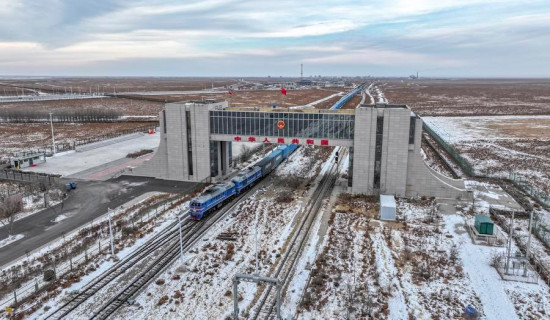- Wednesday, 24 December 2025
Social Protection For Solidarity
Solidarity is a precondition for a good society. It is defined as ‘unity or agreement of feeling or action, especially among individuals with a common interest; mutual support within a group.’ Unity and mutual support are inherent features of solidarity. These features foster national unity and trust which makes a society livable. Underscoring this importance, the Constitution of Nepal, 2015 has categorically stated in its preamble about the protection and promotion of national unity and solidarity. State’s Directive Principle (Article 50) has also emphasised on solidarity for ensuring national unity.
Evidences across the globe show that solidarity is declining among people in the 21st century. Nepal is no exception. This is evident in various aspects of society, including extreme individualism and consumerism, and growing polarisation and fragmentation of social groups. Besides economic division, other disparities are also breaking unity in the society. Weakened Eastern cultural values of humanity and imports of the Western material values have also played a role here. United Nations Economic and Social Commission for Asia and the Pacific (UNESCAP) has recently noted that ‘many people are bogged down with satisfying their own needs and wants, often with little regard for the needs of others’. While this type of selfishness was somehow prevalent in all societies, its intensity and magnitude has expanded over the years. UNESCAP has also noted that ‘at the global level, nationalism is on the rise, paving the way for a greater separation of a country's interests from those of humanity as a whole’.
Interconnected world
The world has become a global village. We live in a heavily interconnected world where ongoing mega and minor trends and crises affect us all. The ripples of the war in Ukraine are felt in the gas bill of a household in Nepal and around the globe. Inflation escalates. Carbon dioxide from fossil-fuel power plants in developed countries turns into torrential rains in South Asia, disrupting lives and paralysing local economies. The challenge of climate change is threatening the world.
In an unequal and divided world, solidarity is a precondition for taking on these challenges. ESCAP has noted that ‘the downward spiral of human and environmental destruction is hard to reverse when decisions are made in pursuit of a sliver of people's interests with no regard for the external costs passed onto others and future generations’. A global, holistic and intergenerational consideration is required in all our planning and actions at all levels.
At the global level, in the UN Secretary-General’s report ‘Our Common Agenda’, social cooperation and solidarity within and between societies are suggested as a central solution to some of the global threats. COP27, which took place last November in Egypt, is the latest encouraging example of the success of a multilateral system founded on profound solidarity. Countries reached a momentous agreement to establish a "loss and damage" fund to vulnerable countries heavily affected by climate disasters. Without such a truly functioning compensatory and solidarity mechanism, global order is likely to continue the global plundering at the cost of developing countries such as Nepal. Mechanism to promote solidarity at the national level is equally crucial through the extension of social protection coverage.
ESCAP has noted that ‘growing inequalities and inadequate social protection are breaking down solidarity in Asia and the Pacific’. The aggregate income of the richest 10 per cent is eight times that of the poorest 50 per cent. There are also huge disparities in access to basic opportunities as many public services have been privatised. Less than half of the region’s population is covered by at least one social protection scheme. Adequacy is terribly low. Nepal’s social protection coverage is just 32 per cent of the population. There is no doubt that high levels of inequality erode trust, increase violence and hamper social cooperation. Inequality is by far the most dangerous human enemy. It impedes the development of social capital and prevents individuals from meaningfully shaping their lives and reaching their full potential. It distorts psychological wellbeing. Indeed, the Buddha was true, when he sought for a middle-class egalitarian society. ESCAP has also noted that ‘combined with regressive taxation and inadequate social protection, inequality is not only a symptom but also a driver of weakened solidarity’.
Cost-effective solution
A strong social protection system may sound costly to implement, but it is a cost-effective solution to reducing inequality and thereby promoting solidarity. The cost of implementing a universal social protection system is not as high as many may think, especially if there is an efficient tax system in place, noted the ESCAP. Research shows that investing in universal child, disability and old-age benefit schemes at global average benefit levels could reduce poverty by 42 per cent on average, while reducing income inequality between the richest 10 per cent and the poorest 40 per cent by 14 per cent on average in the Asia-Pacific region. It has been estimated that the cost of this would only range from 2.3 to 3.9 per cent of their gross domestic product (GDP).
It is argued that a well-designed taxation system, broadening the tax base while moving away from regressive taxation, can generate enough revenue to provide a basic level of protection for all. Down the road, governments can ensure the sustainability of social protection systems by formalising jobs and gradually expanding contributory schemes at the same time. Standing second in people’s willingness to give as measured by World Giving Index after North America, Asia and the Pacific region has the potential to collect more tax revenue for expanding social protection coverage. It will be helpful in flourishing national unity and solidarity as envisioned by our constitution. This is how a solid ground for a peaceful Nepal will be ensured.
(Dr. Bhusal is an expert in poverty, employment and social protection)

















